Iran Voices Readiness For Prisoner Swap With US
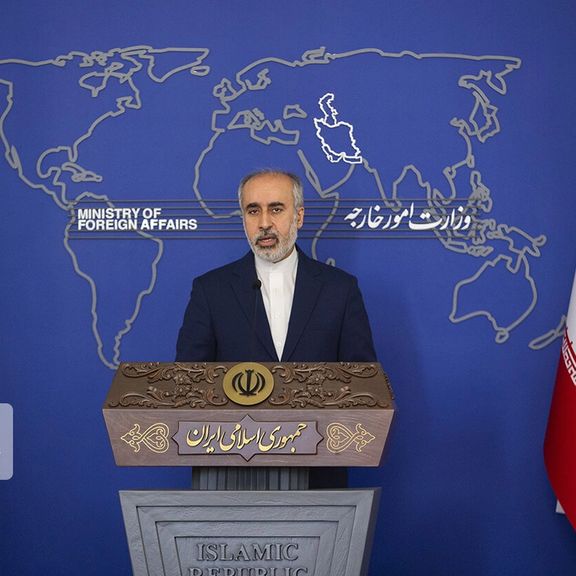
Iran’s Foreign Ministry says Tehran is ready to implement an "immediate agreement on Iranians imprisoned in America".

Iran’s Foreign Ministry says Tehran is ready to implement an "immediate agreement on Iranians imprisoned in America".
Foreign ministry spokesperson Nasser Kanaani said on Wednesday that the Islamic Republic has repeatedly announced its readiness to deal with the issue of prisoners through various channels to the American side.
“We are ready to implement this agreement so that the innocent Iranians imprisoned in America, who have become victims of the injustice of the judicial system of that country on false charges of violating the cruel and illegal sanctions of the United States, can be released and quickly return to their families,” he added.
He made the remarks a day after numerous American officials reiterated calls on Iran to release American dual nationals imprisoned in Iran, deploring the detention of Iranian-American Siamak Namazi on his 2500th day in Iran's notorious Evin prison.
Iran, which does not allow consular access for dual nationals, holds citizens of several countries including Germany, Austria, and Sweden, as de facto hostages. There have reportedly been Tehran-Washington contacts aimed at a prisoner exchange that would free Iranians jailed in the US, mainly over breaching American sanctions.
In the past decade, Iran's Revolutionary Guards have arrested dozens of dual nationals and foreigners, mostly on unproven allegations of espionage in what human rights organizations have said is essentially hostage taking.
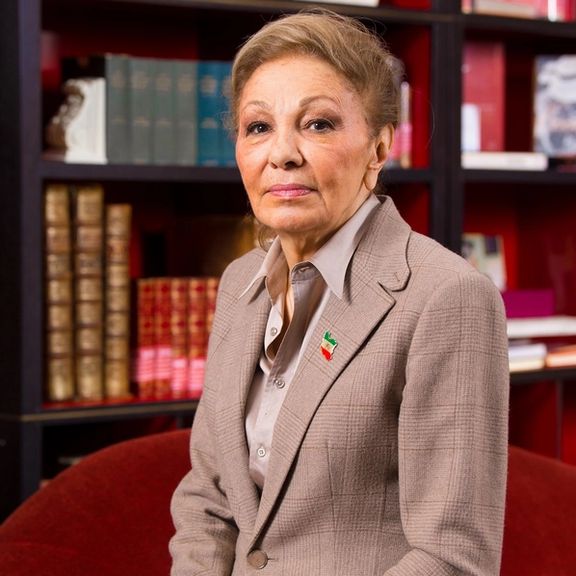
Iran’s exiled queen Farah Pahlavi says the people of Iran "want the return" of the Pahlavi monarchy, and that she is ready to go back home.
The former queen made the remarks in an interview with the Italian newspaper Libero during a recent trip to Egypt to participate in the ceremonies on the death anniversary of her husband, Mohammad Reza Shah Pahlavi, the last king of Iran.
She referred to popular protests in recent years in which Iranians chanted slogans in support and appreciation of Reza Shah Pahlavi – the founder of the dynasty and father of Mohammad Reza Shah, saying that "It is shocking for me” that after all these years and all the Islamic Republic propaganda against the Pahlavi rule, people and politicians have noticed the Shah's services to the country.”
Reza Shah introduced many social, economic, and political reforms during his reign, ultimately laying the foundation of the modern Iranian state. Therefore, he is regarded as the founder of modern Iran.
Expressing hope that she will return to Iran, Farah Pahlavi added, "The most important issue is freedom of Iran and the freedom of Iranians. If one day I can return to my country, it will be a great joy for me."
Referring to the "severe poverty of the majority of Iranian people", the "mistreatment" of women and the protests by workers and teachers, she said that "most Iranians do not want this theocratic government and many young people are in favor of the monarchy."

More than 250 Iranian public figures say the United States must release details of the alleged ties between Salman Rushdie’s attacker and the Islamic Republic.
“We urge democratic countries to recall their ambassadors from Iran in defense of freedom of speech and universal human rights principles and limit the presence of this terrorist-Islamic regime in international organizations as much as possible,” 260 Iranian activists, literally figures, artists, and journalists living outside Iran said in a statementTuesday. They also urged the US government to release further details of the attack on Rushdie and the attacker’s connections with the Lebanese Hezbollah and the Islamic Republic.
US Secretary of State Antony Blinken in a statement on Sunday said Iranian state institutions have incited violence against Rushdie for generations and pointed out that Iran’s state affiliated media gloated over the attempt on his life. “This is despicable.”
Iran’s foreign ministry spokesman on Monday denied any links with the 24-year-old Hadi Matar who stabbed the 75-year-old Indian born author of Satanic Verses in New York on August 12.

Nasser Kanaani, repeated Iran's position that Rushdie had insulted Prophet Muhammed and is guilty. "Salman Rushdie exposed himself to popular outrage by insulting Islamic sanctities and crossing the red lines of 1.5 billion Muslims," Kanaani said.
Vice News reported on Sunday that according to European and Middle Eastern intelligence sources, Matar had been in contact with elements of Iran’s Revolutionary Guards (IRGC). Matar was charged with attempted murder on Saturday.
Vice News quoted a NATO counterterrorism official from Europe as saying that the attack on Rushdie had all hallmarks of a “guided attack”, meaning that a spy agency or a terrorist network had nudged Matar to kill Rushdie without getting directly involved in the operation itself.
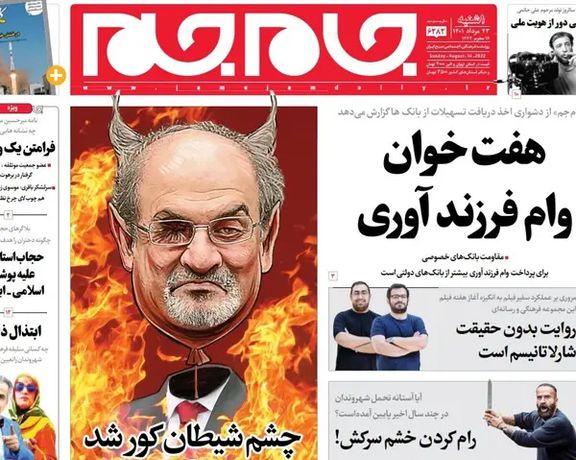
Yahoo news on Tuesday also claimed that it had obtained a New York Police Department intelligence assessment according to which Matar is believed to have sympathized with the IRGC.
A preliminary investigation by police had suggested Matar was sympathetic to the IRGC as his Facebook account featured pictures of Qasem Soleimani, the IRGC general killed in a US drone strike in 2020, and Iran’s Supreme Leader Ali Khamenei.
Iran’s hardline media have openly welcomed the act, praised the assailant and called it “divine vengeance”. The flagship ultraconservative paper Kayhan, published under Khamenei’s supervision, flashed “a thousand bravos” to Matar.
“The western governments’ forbearance of the Islamic Republic’s terrorist activities and hatemongering paved the way for the recent attack on Salman Rushdie in the United States,” the 260 signatories of the statement entitled “Our Hearts Beat with His” said.
Human rights activist Ladan Boroumand, Iranian-French sociologist Saeed Payvandi, Iranian-American writer and professor of English literature Azar Nafisi, Iranian-French photojournalist Reza Deghati, human rights lawyerSaeed Dehghan, and visual artist Barbad Golshiri are among the signatories.
“It is now time to accept the reality that the Islamic Republic only represents a corrupt and criminal group and is the main enemy of the Iranian people and an enemy of peace and security and the global community,” they wrote.
The banned Iranian Writers' Association said in an earlier statement in Tehran that the death sentence issued by then-Supreme Leader Ruhollah Khomeini in 1989 against Rushdie for apostasy limited freedom of thought, expression, publication, and the right to free discussion of Rushdie’s book, Satanic Verses. “Undoubtedly, the attack on Salman Rushdie is clear evidence of assault on freedom of expression.”
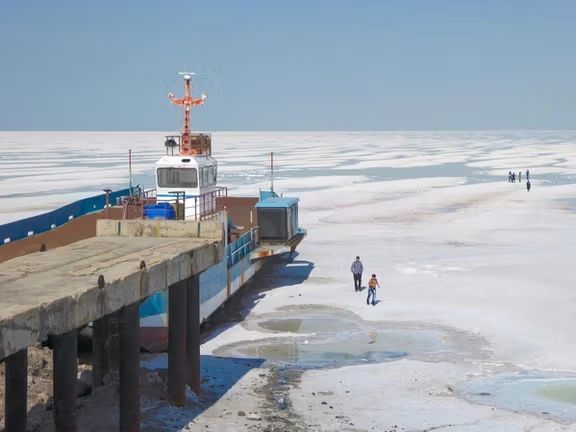
A former vice president and head of the environment department says the fate of the Iranian regime is contingent on saving the country's largest lake that has shrunk by 95 percent.
In a conference on Monday about ways to revive Lake Urmia (Orumiyeh), near Western Azerbaijan Province capital of the same name, Isa Kalantari highlighted that the lake has lost 95 percent of its water over the past three decades, despite government claims that it has appropriated hundreds of millions of dollars to prevent the environmental disaster.
If the lake is not restored, it will have security consequences, and no government can survive in the country because it cannot withstand the flood of migration of millions of people who reside near it, he said.
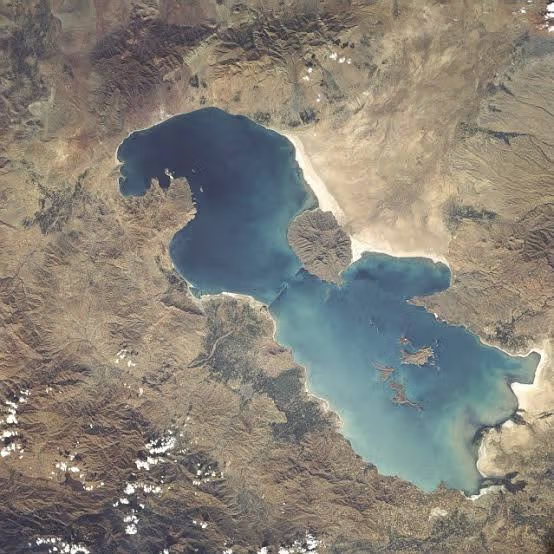
Kalantari said that the country's experts had warned about the drying up of this lake since the mid-1990s, but the authorities ignored the warnings.
Considering the fact that it has 13 billion tons of salt in its bed, if the lake dries up completely, the city of Tabriz should be evacuated, he elaborated, adding that even if this evacuation is possible, it will cost at least one trillion US dollars.
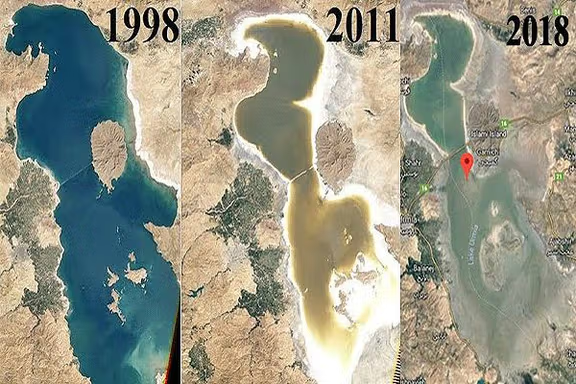
“The residents of the neighboring provinces will be forced to migrate; winters will be at least 3-4 degrees colder and summers 3-4 degrees hotter, which will disrupt the entire ecology of the region," he noted.
At its greatest extent, Urmia was the largest lake in the Middle East and sixth largest salt lake in the world, with an original surface area of 5,200 square kilometers in the 1970s, or 2,000 square miles. It had shrunk to 700 sq km by 2013. The lake began shrinking in the 1980s due to water mismanagement and climate change.
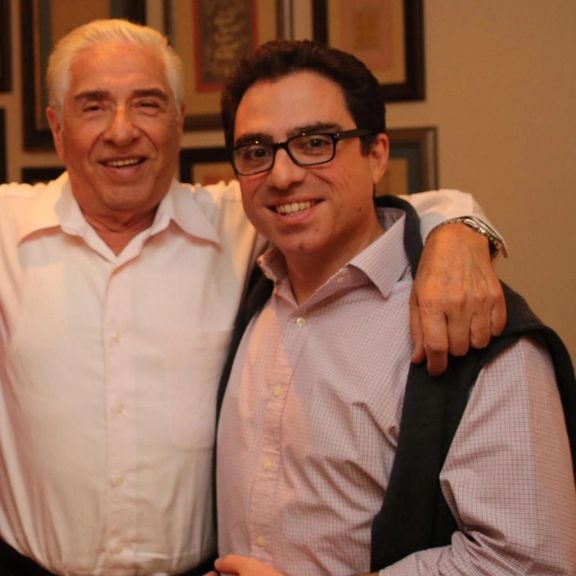
Several US lawmakers and officials deplored the detention of Iranian-American Siamak Namazi on Tuesday, his 2500th day in Iran's notorious Evin prison.
Secretary of State Antony Blinken highlighted that Namazi has now spent “2,500 days wrongfully detained in Iran,” adding that “We are determined to secure his freedom and ensure all Americans who have been wrongfully detained by Iran, including his father Baquer (Bagher), can return home.”
Special Envoy for Iran Robert Malley tweeted that “Iran’s unjust imprisonment of US citizens for use as political leverage is outrageous,” urging the Islamic Republic to allow Siamak, and his father, as well as other American citizens.
Calling on Iran to free all Americans, Senate Foreign Relations Committee Ranking Member Jim Risch (R-Idaho) called it “unconscionable” that Namazi has spent 2,500 days in prison on “fraudulent charges,” saying that “The regime, in addition to its horrendous support for terrorism abroad, continues to play political games with the lives of innocent Americans.”
Senator Marco Rubio (R- Florida) slammed Tehran’s hostage diplomacy, noting Siamak’s “suffering has gone on far too long" and calling for his release.
Echoing similar sentiments, US Representative Michael McCaul (R-Texas) said that “He and all US hostages in Iran must be freed immediately.
In a message from prison, Namazi said that “the other hostages and I desperately need the Biden administration to match up claims that rescuing us is a priority with effective action...Today, our fate is subsumed under the nuclear talks and our freedom is contingent on their success.”
State Department spokesperson, Ned Price, said in his press briefing on Tuesday that the US has not tied the fate of Namazi and other hostages to the result of the nuclear talks to revive the 2015 deal.
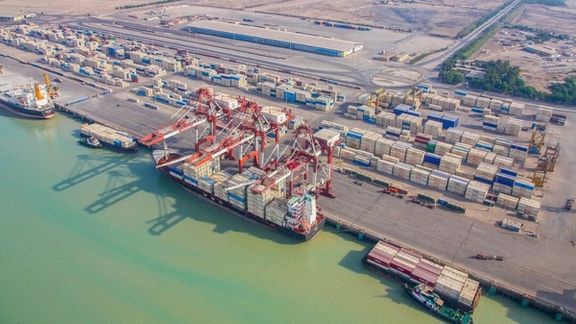
A senior Iranian diplomat, Mehdi Safari says there is a conflict of interest between Iran and Russia in the energy sector, but there can be also cooperation.
In an interview with Etemad Onlinein Tehran Safari, Deputy Foreign Minister for Economic Affairs explained that Iran relies on Russia for importing essential commodities and in return exports cement to Russia. "We lend our export capability to Russia," he said, adding that "Our trade volume with Russia is $5 billon and we want to increase it to $10 billion."
Safari said Russia is a powerful country in oil and gas and can invest in Iran in the same areas while also transferring technology to Iran. He added that "Iran can also swap Russia's gas and oil with other countries. We get gas from one country and sell it to another country and make some profit. This is our economic and geopolitical potential."
Lately, Iranian officials have spoken about gas swap with Russia. Receiving natural gas and selling it to neighboring countries. But in reality, only Iraq is need of gas, but it is not a customer of Russia.
Safari, who has studied electronic engineering and telecommunications at George Washington University is introduced by Iranian media as a Russia expert. The Etemad Online reporter characterized him as a man with a conservative character who refused to remove his face mask during the interview.

Meanwhile, Safari, a former Iranian ambassador to Russia and China, told Etemad Online that Iran has signed barter trade contracts with up to ten countries despite US sanctions, however, he declined to name those countries. Safari added that barter trade is Iran's solution to circumvent the sanctions.
He has been a member of Iran's nuclear negotiators team since the 2010s when ultraconservative politician Saeed Jalili was in charge of the negotiations. During the interview, says the reporter, he declined to share many information points, fearing that "the other side might take advantage."
Safari told Etemad Online that "sanctions do not mean death and there are many ways to nullify them." However, his only solution was barter trade. He said that despite the sanctions there are many ways to further international trade although sanctions mainly affect international banking. Asked what those ways were, Safari once again referred to barter.
He disagreed with Etemad Online that barter trade will inevitably increase the cost of transactions. While this can be true in normal circumstances, Iran faces sanctions and countries that agree to barter trade with Tehran would use it as leverage to enhance their profits. Barter also deprives the country of foreign currency it can invest for economic growth.
Prominent economic journalist Maryam Shokrani wrote in a series of tweets on Sunday, August 14, that "Russia has quoted a price ten times higher than usual for work on projects in Iran." She quoted the Transportation and Logistics Confederation as saying that "Iran is about to conclude a contract with Russia for constructing a railway between Garmsar and Inceborun.”
The reporter also quoted Meysam Lajevardi, a rail transport expert, as saying that a German company has offered a contract at one tenth of that amount for the same project."
Shjokrani added that Russia had offered no bank guarantee to Iran for that contract and wanted to bring 80 percent of the personnel needed for the project from Russia. She added that the government of President Hassan Rouhani had accepted those unlawful conditions and it appears that the Raisi administration has also submitted to the same conditions.